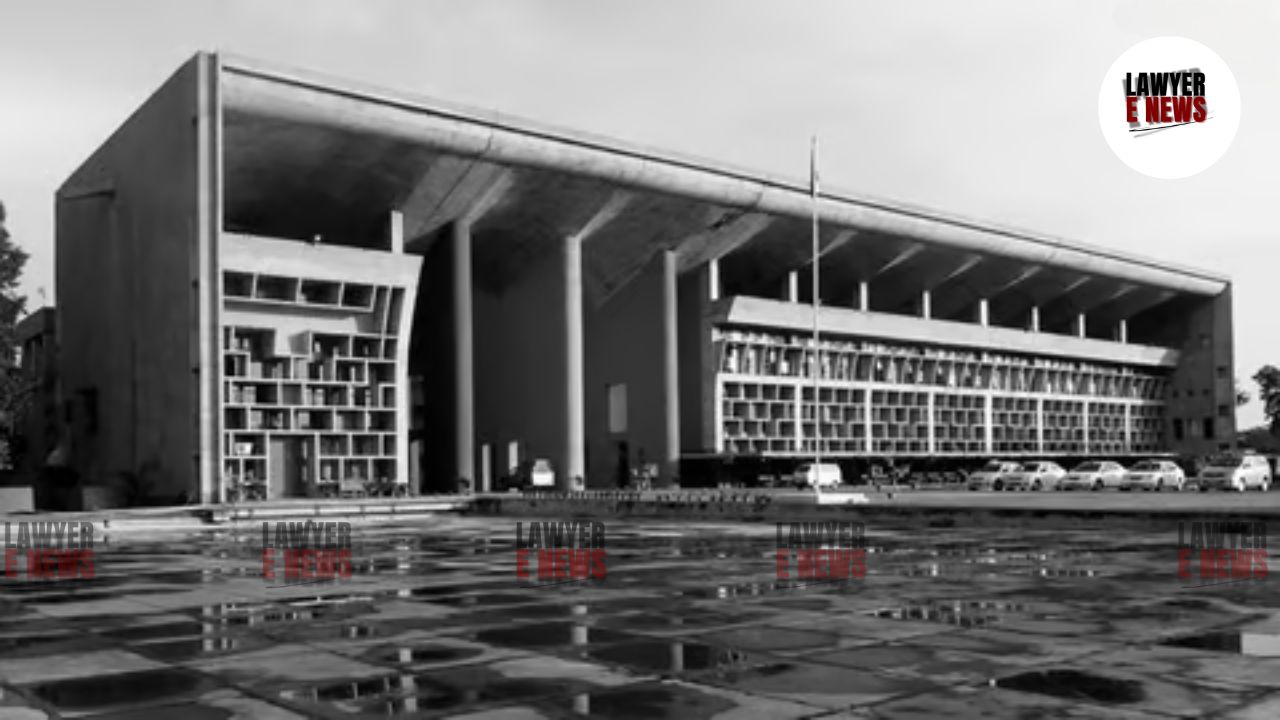-
by Admin
15 February 2026 5:35 AM



Punjab and Haryana High Court emphasizes constitutional right to a speedy trial in granting bail to four accused after nearly four years in custody.
In a significant ruling, the Punjab and Haryana High Court has granted bail to four individuals accused in a high-profile case involving charges under the Unlawful Activities (Prevention) Act (UAPA), Narcotic Drugs and Psychotropic Substances Act (NDPS), and the Indian Penal Code (IPC). The court highlighted the prolonged pre-trial incarceration and the fundamental right to a speedy trial as key reasons for their release.
The case originates from an FIR registered on 25 April 2020, when police received information about Hilal Ahmed Shergojari, an alleged active member of Hizb-ul-Mujahideen, being involved in collecting funds through drug smuggling. Following the arrest of Hilal Ahmed with ₹29 Lakhs, the National Investigation Agency (NIA) took over the investigation and filed charges against eleven accused under various sections of the UAPA, NDPS Act, and IPC. The appellants, Gursant Singh, Manpreet Singh, Hilal Ahmed Shergojari, and Bikram Singh, have been in custody for nearly four years without the conclusion of their trial.
The court noted that the primary evidence against the accused included call detail records and statements of protected witnesses, which were not part of the public record. The court expressed concerns over relying heavily on such evidence at the bail stage.
Emphasizing the right to a speedy trial under Article 21 of the Constitution, the court observed, "The appellants have been in custody for almost four years, and the trial has not yet commenced in earnest." The bench underscored that indefinite pre-trial detention amounts to a violation of the accused's fundamental rights.
The court pointed out the lack of direct recovery of narcotic drugs from most appellants and the absence of any attached properties allegedly bought with proceeds from the crime. It also noted that the serious allegations were based primarily on circumstantial evidence.
Gursant Singh: Accused of being involved in smuggling heroin and generating funds for Hizb-ul-Mujahideen. The court found the evidence, including allegations of handling large sums of money during the national lockdown, to be less credible.
Manpreet Singh: No charges under UAPA but implicated under NDPS and Arms Act. The court noted the lack of direct recovery of firearms from his possession.
Hilal Ahmed: While accused of being a Hizb-ul-Mujahideen member, the court found no direct evidence of his activities for the organization.
Bikram Singh: Alleged to have been in possession of heroin and cash. The court considered the extended pre-trial custody sufficient to sever ties with any criminal associates.
The court referred to several Supreme Court judgments that stress the importance of safeguarding the fundamental right to liberty and the necessity of a speedy trial. The judgment cited the Supreme Court's recent pronouncement in Javed Gulam Nabi Shaikh v. State of Maharashtra, which emphasized that prolonged detention without trial violates the accused's constitutional rights.
Justice Jagmohan Bansal remarked, "If the State or any prosecuting agency including the Court concerned has no wherewithal to protect the fundamental right of an accused to have a speedy trial as enshrined under Article 21, then the State should not oppose the plea for bail on the ground that the crime committed is serious."
The High Court's decision to grant bail to the accused underscores the judiciary's commitment to upholding constitutional rights and ensuring that justice is not compromised by prolonged incarceration without trial. This ruling is likely to have a significant impact on future cases, particularly those involving stringent laws like the UAPA and NDPS Act, reinforcing the necessity of a balanced approach that respects both the severity of allegations and the fundamental rights of the accused.
Date of Decision: 12 July 2024
